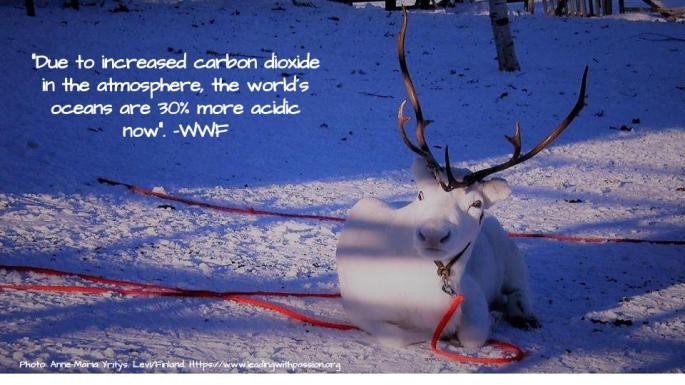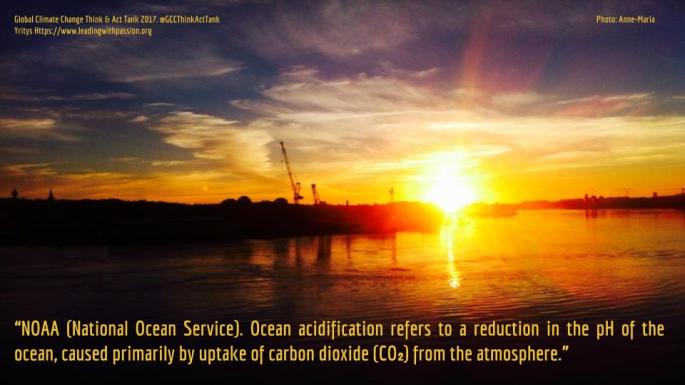
In my previous post, What Contributes to Ocean Acidification?, I explained briefly what contributes to ocean acidification and why this is so harmful to our marine ecosystems. The response to why this is a serious threat to life in the Arctic region is thus quite simple, when we understand what contributes to ocean acidification and how this affects our ocean´s overall well-being.
The more greenhouse gases released into Earth´s atmosphere, a significant amount of which end up in our oceans, the bigger the damage in our marine ecosystems. When around nine million (9.000.000) people die each year worldwide due to pollution only, we can only imagine what all of the pollution, including dangerous toxins such as greenhouse gases, does to our atmosphere, our waters and our environment in general. In many parts of the world, e.g. coral reefs are already suffering and dying due to all of the pollution and toxins absorbed by our ocean´s and other water sources. Coral reefs are living beings, small animals, which are extremely important to our marine ecosystems. If we lose our corals due to human-caused release of toxins such as greenhouse gases, we will ultimately destroy ourselves.
ALL of our marine ecosystems are already endangered and damaged. What makes the Arctic region especially vulnerable is its unique ecosystem, which has until now been protected by thick layers of ice and permafrost. When glaciers melt, ice sheets melt, and permafrost melts, the release of dangerous and harmful greenhouse gases, especially methane, accelerates and causes even more damage to our (marine) ecosystem.
Learn more about Arctic Ocean Acidification by watching Nordisk Samarbejde´s video:
Connect with me on Twitter @annemariayritys. For climate/environment-related posts only @GCCThinkActTank. Subscribe to Leading With Passion to receive my latest posts.
Take a step further to create YOUR online business. Learn more about the many benefits of how to create a beautiful website with WordPress.com and how to monetize your blog/website:
WordPress.com – Create A Beautiful Website
Jetpack – The ideal way to experience WordPress – Code-free Customization
WooCommerce – The most customizable eCommerce platform for building your online business





You must be logged in to post a comment.